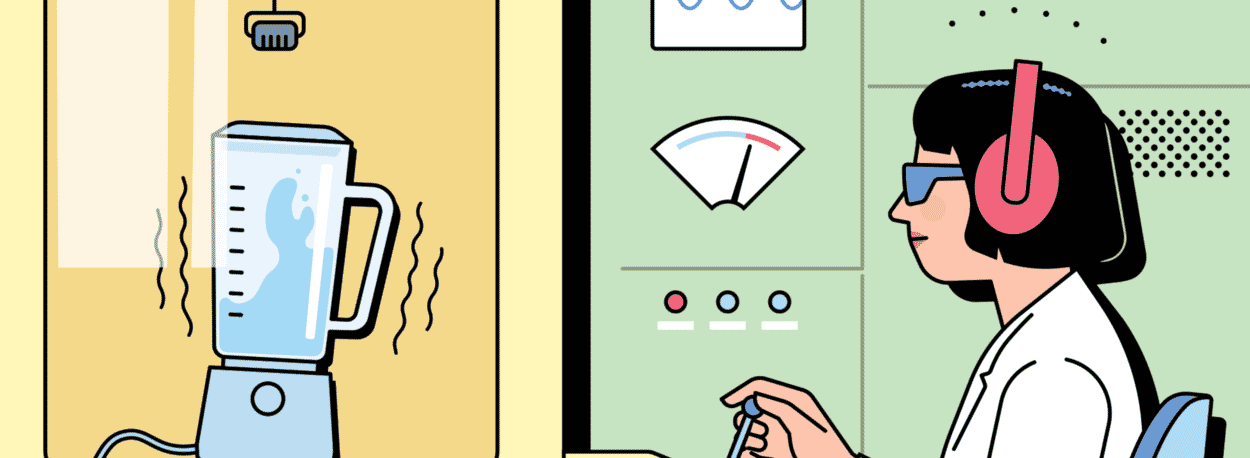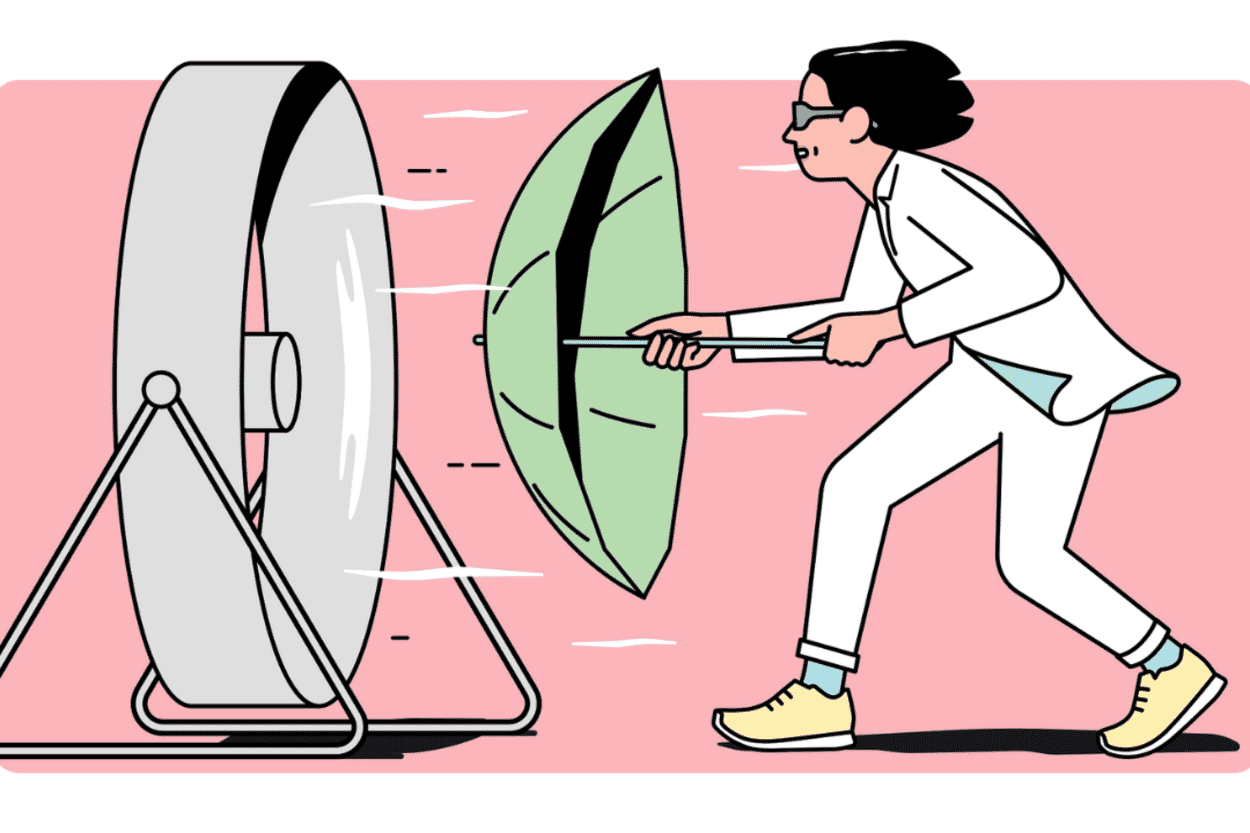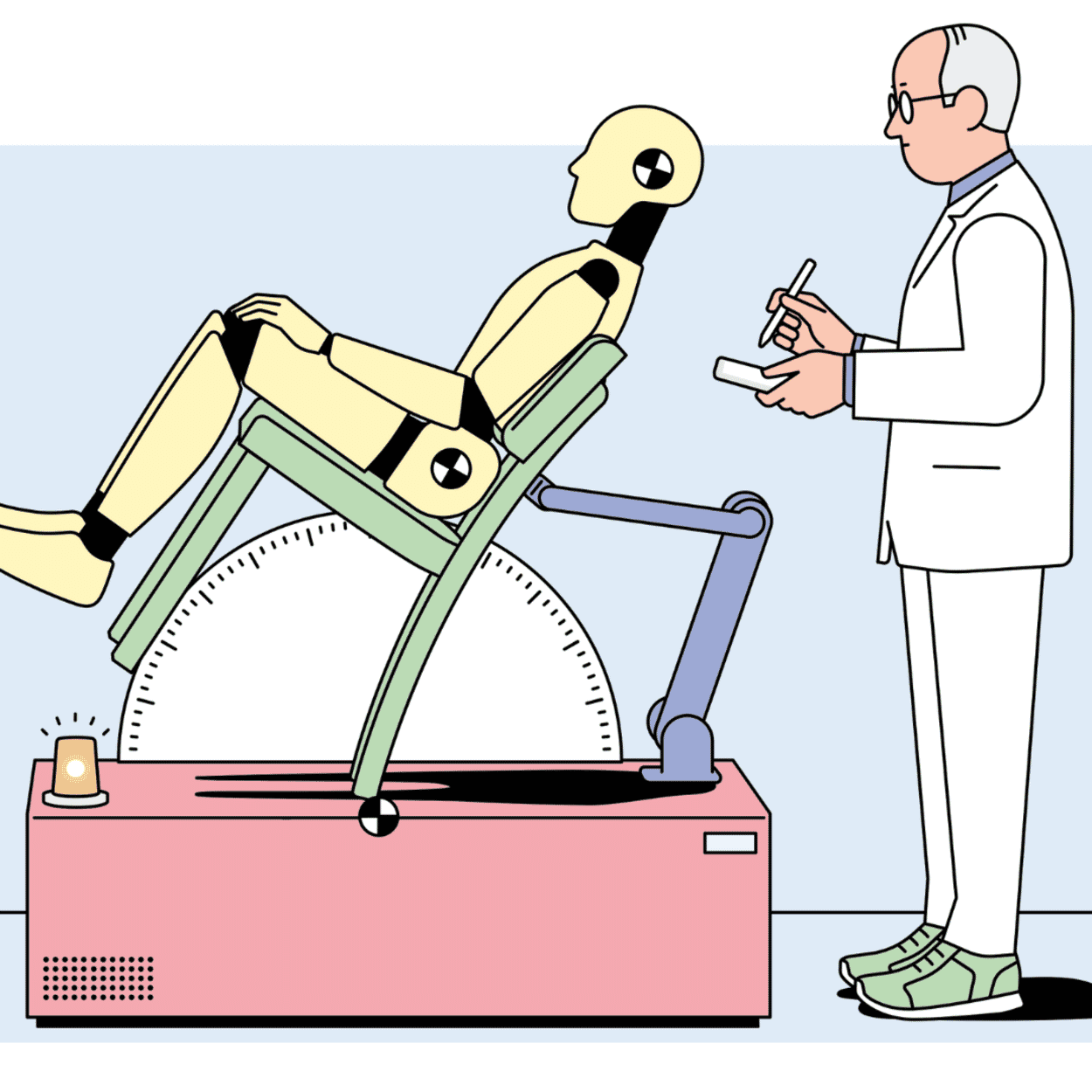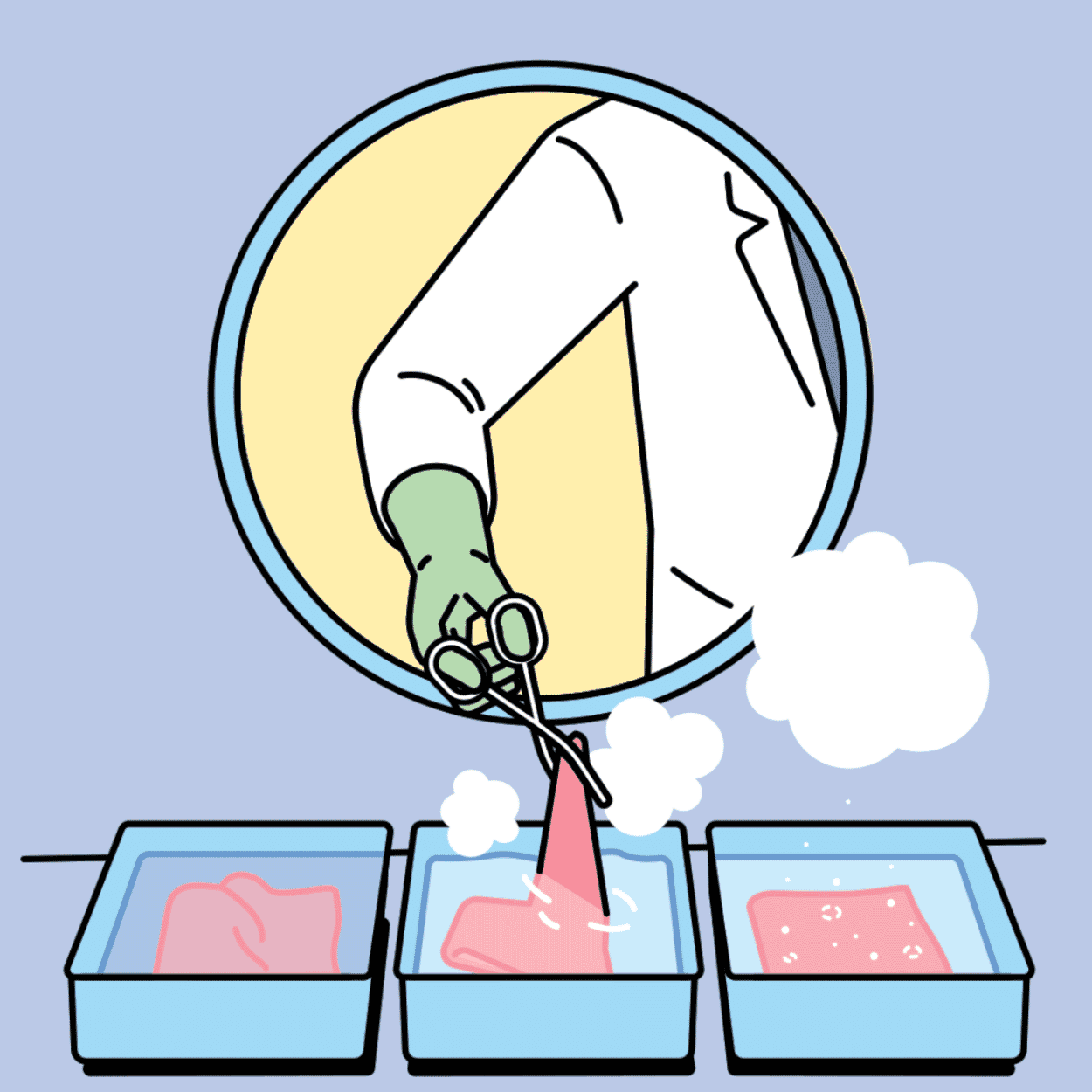The final instance
Does a product deliver what it promises? The quality management team at MAGAZIN checks all items that we add to our range. Furniture, appliances and everyday objects are literally taken apart with legal expertise and craftsmanship. Text: Jasmin Jouhar, Illustration: Dirk Rittberger
Is the crib saliva-proof? Is the drinking bottle also suitable for carbonated drinks? Are the assembly instructions for the shelf helpful? Does the food processor comply with safety regulations? Can the packaging withstand the rough parcel service? Answering these and many other questions about products from the MAGAZIN range is the job of Tom Darenberg and his team. "I enjoy doing detective work," he says. How does he find answers to the questions? "You call colleagues or talk to suppliers on the phone. You look to see if there is any specialist literature. Sometimes googling helps too." Darenberg is head of quality management, a department that checks every product before MAGAZIN actually adds it to the range. Sometimes a luminaire is taken apart to make sure it is wired correctly. Or to check whether the gaps in a wooden chest are correct so that children's fingers don't get trapped.
The QM team, as quality management is abbreviated internally at MAGAZIN and its sister brand Manufactum, comprises a total of ten people. The offices are housed in an old colliery building in Waltrop near Dortmund, and the contrast of solid brick walls and transparent glass walls characterizes the workplaces. Between the desk and the workbench, between the computer and the toolbox, between the file folder and the tension meter, the QM department's daily focus is on whether a product meets all legal requirements. This starts with the labeling and does not end with the Low Voltage Ordinance. The team also checks according to MAGAZIN's own quality specifications. For example, operating instructions are critically read for comprehensibility. Aspects such as functionality and conservation of resources are crucial. Does a product really deliver what it promises?
Tom Darenberg's team includes a textile engineer and a seamstress who scrutinize the textiles. A lawyer specializing in commercial law keeps everyone up to date with the latest standards. Darenberg himself is originally a business economist and has familiarized himself with all aspects of product safety and quality. Craftsmanship is also needed when an appliance or piece of furniture has to be taken apart. The QM department also includes a sample warehouse, where a specimen of every item in the range is kept. This ensures that we are prepared in case a customer contacts customer service with a query. QM therefore documents every product, measures it and photographs it from all sides. "Customer Service receives questions about details all the time," says Darenberg. For example, prospective customers want to know what a cup looks like from below or how far apart the legs of a chair are before buying. Tom Darenberg sees QM as a guarantee for MAGAZIN that safe and legally compliant products are being sold. And as a guarantee for customers that they can rely on the products. "We are the final authority." And if an item does not pass the "product police" test? "Then we don't sell it," says Darenberg. However, there is usually still a chance if the QM department confronts the supplier with the defect. For some, rectification seems too costly and a business relationship is not established. In many other cases, the team meets with interest and suggestions for improvement can be implemented. The effort is worth it: QM is not only an important building block in product range design. It also vouches for the quality promise of MAGAZIN to only offer selected good products.









